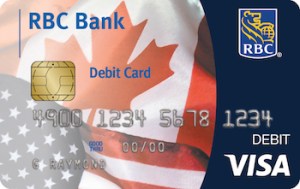Published June 11, 2018 • 5 Min Read
Maybe you’ve always wanted to live in New York City, or perhaps Silicon Valley and its tech opportunities are calling. Wherever you’re thinking of moving to in the U.S., you’ll want to make your job search as smart as possible.
We spoke with Rick Dionisio from Ingenium recruitment about the skills U.S. companies are looking for currently. We also asked about the outlook for IT professionals (Hint: It’s great!).
Here’s everything you may need to know about job hunting in the States right now.
Which IT Skills are in Demand in the U.S.?
In the major metropolitan tech centres, companies are looking for:
-
Web developers,
-
Mobile developers,
-
Data scientists, data engineers, and those experienced in the big data,
-
Artificial intelligence, machine learning, and natural language processing.
Where to Look for Employment
For an idea of the roles available, there are sites like Indeed.com, Simply Hired, and Glassdoor. Just key in the cities you’re interested in and the keywords for your skillset, then see what comes up.
If you’re interested in working for a startup, AngelList may be a good place to look. Dice and ComputerWork specialise in tech and IT jobs. And Slack is also being used as a search tool by recruiters and hiring managers.
Going through a recruiter can be invaluable, Dionisio says. If you’re sending your resume directly to company websites, some HR departments might see your Canadian address and immediately decide they don’t want to deal with relocation or someone who isn’t already local. A recruiter may help make that vital introduction for you. They can explain your situation and your genuine desire to move to the States.
You’ll likely want to work with a recruiter that specializes in IT and tech. Searching them out is easy enough through the American Staffing Association. Major cities all have their own staffing associations, too.
How to Secure a Work Visa
If you’re a Canadian citizen, getting a TN work visa for the U.S. can be a seamless process. The main caveats are that you must have a job offer from the U.S. employer, and the profession you’ll be working in has to match your college degree and/or your professional experience.
Once you have an offer, the U.S. company will file a petition on your behalf to U.S. Citizenship and Immigration Services. Once that’s approved, you should be able to go to customs and declare that you’d like to enter on a TN visa. If all goes well, everything will get stamped and approved and you can get to work!
For the latest on immigration processes, you’ll want to check the U.S. Consular Affairs website.
For more information on the logistics of moving to the States from Canada, check out the Moving to the U.S. from Canada series.
The Current IT Landscape
There’s considerable opportunity for IT professionals looking to work in the U.S. Supply and demand is definitely in favour of candidates right now, says Dionisio. And to compete for talent, many companies are providing aggressive packages.
If you’re a recent college graduate or junior in terms of work experience, you might want to try the bigger companies for jobs. Fortune 500 types often hire more junior-level professionals because they hire so many people for a variety of roles.
Startups and engineering firms are typically looking for experienced professionals who are mid-to-late in their career. They don’t have the luxury of employing hundreds, or even thousands, of people, which means they have to be a bit more selective in whom they hire. All this is to say that if you’re an experienced IT professional who’s looking to move to the States, you’ll likely have more options to choose from.
How Much Help Will Your U.S. Company Provide?
Good news! It’s becoming increasingly commonplace for companies to pay for your flight for in-person interviews. Typically they’ll also put you up overnight in a hotel, and make sure you’re covered for food if you’re onsite for the interview all day.
In terms of relocation provisions, the size of the company often matters. The candidate’s skill level is also important. It may be harder for a recent college graduate to get a relocation package than it will for, say, an experienced senior software engineer with a decade’s experience. Still, sign-on bonuses and some kind of relocation package to ease the burden of moving is becoming increasingly standard.
What Happens When You Start Earning U.S. Dollars
If you’re not planning on leaving Canada for good, you’ll want to convert your freshly earned U.S. dollars into Canadian currency whenever the exchange rate is looking good. One of the best and simplest ways to do this is with cross-border banking.
For more information on moving to the States, take a look at the Moving to the U.S. from Canada series.

Brought to you by RBC BankTM U.S.
RBC Bank is RBC Bank (Georgia), National Association (“RBC Bank”), a wholly owned U.S. banking subsidiary of Royal Bank of Canada, and is a member of the U.S. Federal Deposit Insurance Corporation (“FDIC”). U.S. deposit accounts are insured by the FDIC up to the maximum amount permissible by law. U.S. banking products and services are offered and provided by RBC Bank. Canadian banking products and services are offered and provided by Royal Bank of Canada. U.S. deposit accounts are not insured by the Canada Deposit Insurance Corporation (“CDIC”).
This article is intended as general information only and is not to be relied upon as constituting legal, financial or other professional advice. A professional advisor should be consulted regarding your specific situation. Information presented is believed to be factual and up-to-date but we do not guarantee its accuracy and it should not be regarded as a complete analysis of the subjects discussed. All expressions of opinion reflect the judgment of the authors as of the date of publication and are subject to change. No endorsement of any third parties or their advice, opinions, information, products or services is expressly given or implied by Royal Bank of Canada or any of its affiliates.
Any information, opinions or views provided in this document, including hyperlinks to the RBC Direct Investing Inc. website or the websites of its affiliates or third parties, are for your general information only, and are not intended to provide legal, investment, financial, accounting, tax or other professional advice. While information presented is believed to be factual and current, its accuracy is not guaranteed and it should not be regarded as a complete analysis of the subjects discussed. All expressions of opinion reflect the judgment of the author(s) as of the date of publication and are subject to change. No endorsement of any third parties or their advice, opinions, information, products or services is expressly given or implied by RBC Direct Investing Inc. or its affiliates. You should consult with your advisor before taking any action based upon the information contained in this document.
Furthermore, the products, services and securities referred to in this publication are only available in Canada and other jurisdictions where they may be legally offered for sale. Information available on the RBC Direct Investing website is intended for access by residents of Canada only, and should not be accessed from any jurisdiction outside Canada.
Share This Article






